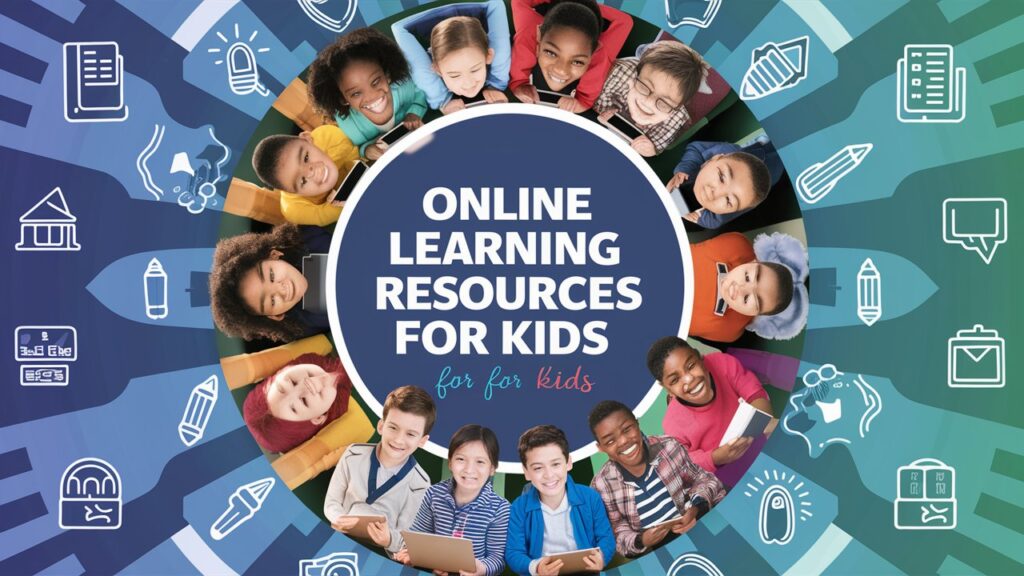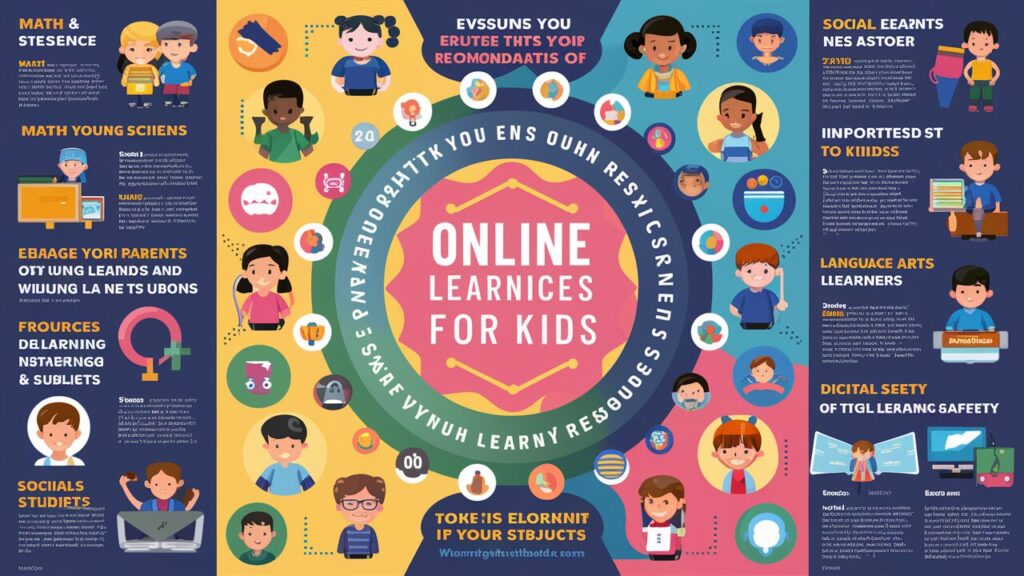In today’s digital age, the landscape of education is evolving rapidly, with online learning resources becoming an integral part of children’s education. These resources offer a wealth of opportunities for kids to learn in engaging, interactive, and personalized ways. Whether supplementing traditional classroom learning or serving as the primary mode of education, online learning tools cater to various subjects, learning styles, and age groups. This article explores some of the best online learning resources for kids and how parents and educators can leverage them effectively.
1. Interactive Learning Platforms
a. Khan Academy
Khan Academy is a non-profit educational platform offering free courses on a wide range of subjects, from math and science to history and arts. Its user-friendly interface and interactive exercises make learning fun and engaging for kids. The platform also provides progress tracking and personalized learning paths to cater to individual student needs.
b. ABCmouse
Designed for younger learners, ABCmouse offers a comprehensive curriculum for kids aged 2-8. With its colorful graphics, interactive games, and engaging activities, it helps children develop foundational skills in reading, math, science, and art. The platform’s structured lessons and reward system keep kids motivated and excited about learning.

2. Coding and Technology
a. Scratch
Scratch, developed by the MIT Media Lab, is a free programming language and online community where kids can create their own interactive stories, games, and animations. It introduces children to the basics of coding through a visual, drag-and-drop interface, fostering creativity and problem-solving skills.
b. Code.org
Code.org is a non-profit dedicated to expanding access to computer science education. It offers a range of free coding courses and activities for students of all ages. The platform’s engaging tutorials and games teach the fundamentals of coding and computer science, preparing kids for the digital future.
3. Reading and Literacy
a. Epic!
Epic! is an online library designed for kids aged 12 and under, offering access to over 40,000 books, audiobooks, and educational videos. Its vast collection includes popular titles and educational materials that encourage a love of reading and support literacy development. Epic! also provides personalized recommendations based on a child’s interests and reading level.
b. Raz-Kids
Raz-Kids is an award-winning digital resource that provides hundreds of interactive eBooks at 29 different levels of reading difficulty. Each eBook is equipped with tools to help kids develop their reading skills, such as word highlighting and audio support. Teachers and parents can track progress and assign appropriate reading levels to ensure continuous improvement.
4. Math and Science
a. Prodigy
Prodigy is a free, curriculum-aligned math game for kids in grades 1-8. It combines math practice with a role-playing game (RPG) format, making learning math concepts fun and engaging. Prodigy adapts to each child’s learning pace, ensuring they receive the right level of challenge to keep them motivated.
b. National Geographic Kids
National Geographic Kids offers a plethora of educational resources, including articles, videos, and interactive games focused on science, geography, and history. The platform’s visually stunning content and interactive elements captivate children’s imaginations and foster a curiosity about the world around them.
5. Comprehensive Learning Hubs
a. PBS Kids
PBS Kids provides a wide range of educational games, videos, and activities based on popular PBS television shows. The platform covers various subjects, including literacy, math, science, and social studies, offering children a holistic educational experience. Its content is designed to be both educational and entertaining, ensuring kids enjoy the learning process.
b. BrainPOP
BrainPOP offers animated educational videos, quizzes, and games across various subjects for kids in K-12. Its engaging content and interactive features make complex topics accessible and enjoyable. BrainPOP also provides resources for teachers to integrate its content into their lesson plans effectively.
Tips for Parents and Educators
To maximize the benefits of online learning resources, parents and educators should consider the following tips:
- Set Clear Goals: Define what you aim to achieve with the online resources, whether it’s improving specific skills, supplementing schoolwork, or exploring new subjects.
- Create a Schedule: Establish a consistent routine for using online learning resources, balancing screen time with other activities.
- Monitor Progress: Regularly check in on the child’s progress and adjust the resources or approach as needed to address any challenges or gaps in understanding.
- Encourage Exploration: Allow kids to explore topics of interest beyond the standard curriculum to foster a love of learning and curiosity.
- Stay Involved: Engage with the child’s learning by discussing what they are studying, helping with difficult concepts, and celebrating their achievements.

Conclusion
Online learning resources for kids offer a dynamic and flexible approach to education, making learning accessible, enjoyable, and effective. By utilizing these tools, parents and educators can support children’s educational journeys and help them develop essential skills for the future. Whether through interactive platforms, coding tutorials, or digital libraries, the wealth of resources available ensures that every child can find something that sparks their interest and fosters a lifelong love of learning.



